Life on pause in Ecuadoran capitol gripped by protests
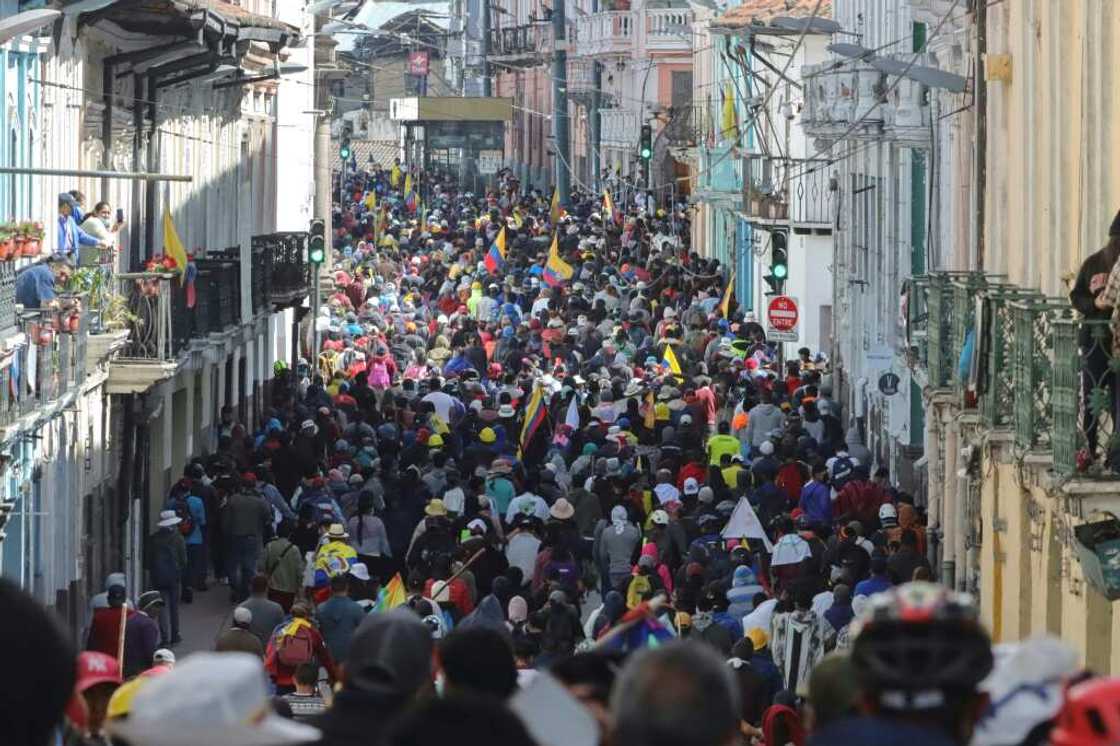
Source: AFP
PAY ATTENTION: Click “See First” under the “Following” tab to see Legit.ng News on your Facebook News Feed!
Quito is a city beleaguered -- its shops shuttered and streets empty of all but thousands of Indigenous protesters clamoring for a better life, and the police and soldiers keeping them in check.
Some 10,000 demonstrators have gathered in the Ecuadoran capital from all over the country to protest high fuel prices and rising living costs.
And they have vowed to stay until the government meets their demands, or falls.
"It could be a month, it could be two... The war will come but here we will fight," said Maria Vega, 47, who ekes out a living doing odd jobs -- one of about a third of Ecuadorans living in poverty.
Nearly a third do not have full-time work.
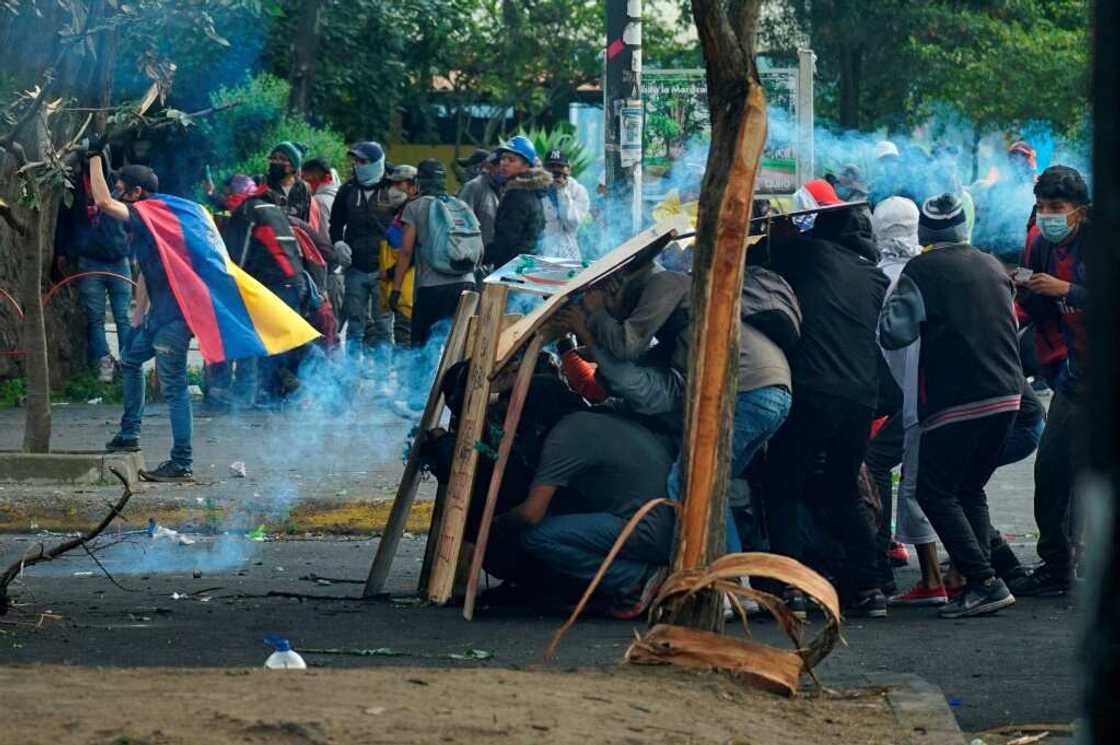
Source: AFP
PAY ATTENTION: Subscribe to Digital Talk newsletter to receive must-know business stories and succeed BIG!
Demanding jobs, fuel price cuts, better healthcare and education, they arrived in Quito on foot or on the backs of trucks, many from hundreds of kilometers away.
At night, after long hours on the streets, they recharge, housed austerely at two university campuses and relying in large part on food handouts from church and other groups.
Shields, sticks and flags
In the mornings, they set out in groups bearing sticks, makeshift shields fashioned from traffic signs or rubbish bins, and the wiphala -- the multicolored flag of the native peoples of the Andes.
Traditional red ponchos stand out among the aggrieved crowds, who set up road barricades with burning tires and tree branches, building bonfires in broad daylight.
Access to the presidency is blocked by metal fences, razor wire and stern lines of security personnel.
"They have weapons. How can one compare a weapon to a stick or a stone? We are not on an equal footing," protester Luzmila Zamora, 51, complained of the show of force.
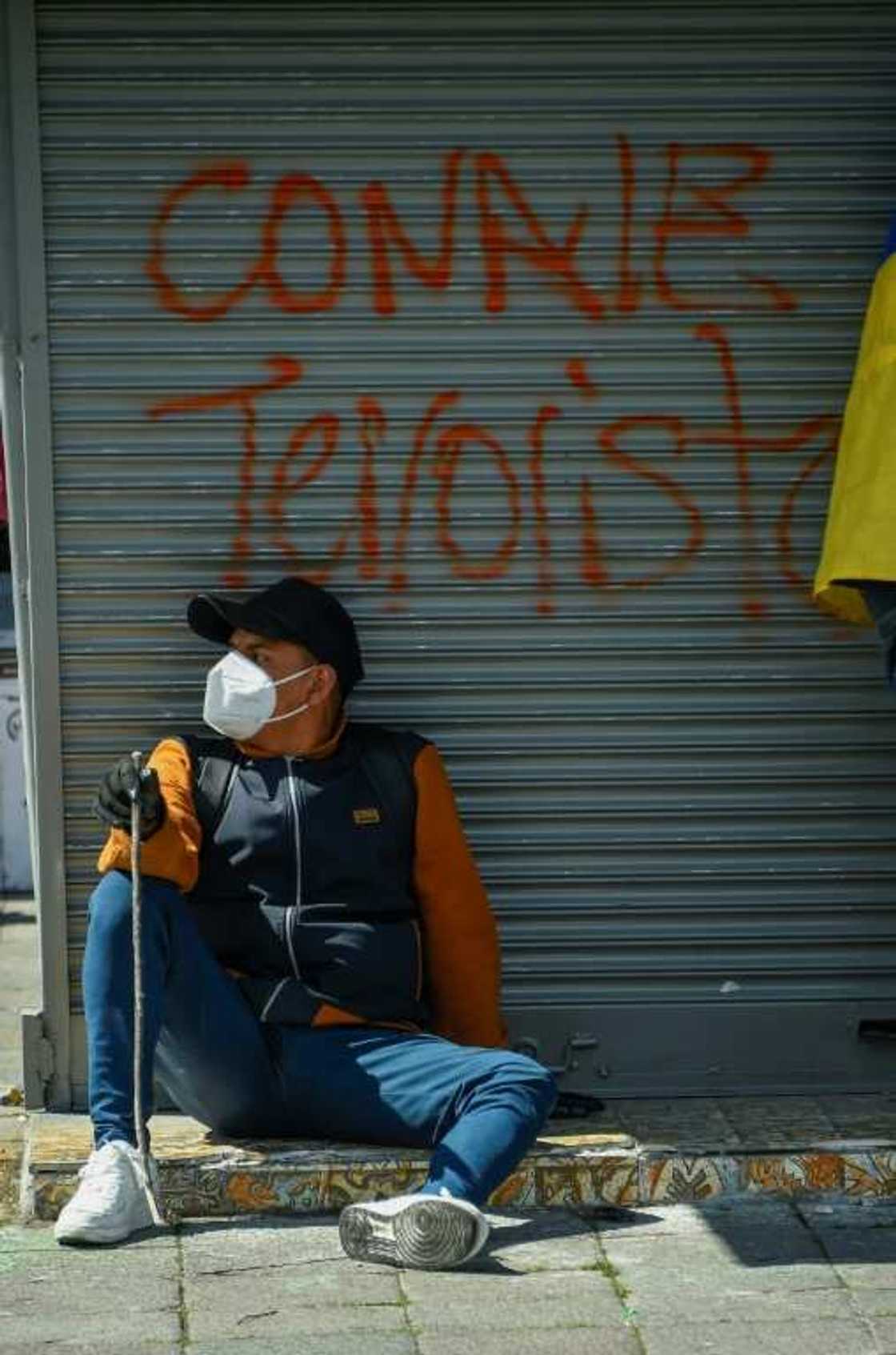
Source: AFP
President Guillermo Lasso, a former banker who took office a year ago, sees in the revolt an attempt to overthrow him.
Ecuador has a reputation for ungovernability following the departure of three presidents between 1997 and 2005 under pressure from Indigenous people -- who make up more than a million of Ecuador's 17.7 million people.
In 2019, protests led by the Confederation of Indigenous Nationalities of Ecuador (Conaie) -- which also called the latest demonstrations -- forced the government to abandon plans to eliminate fuel subsidies.
They seem as determined this time around: standing firm in spite of a state of emergency in six of Ecuador's 24 states, a night-time curfew in Quito, a massive military deployment and insults hurled at them from residents whose lives and livelihoods have been thrown into turmoil.
"We want a government that works for the people, for all of Ecuador, not only for the upper class," insisted protester Zamora.
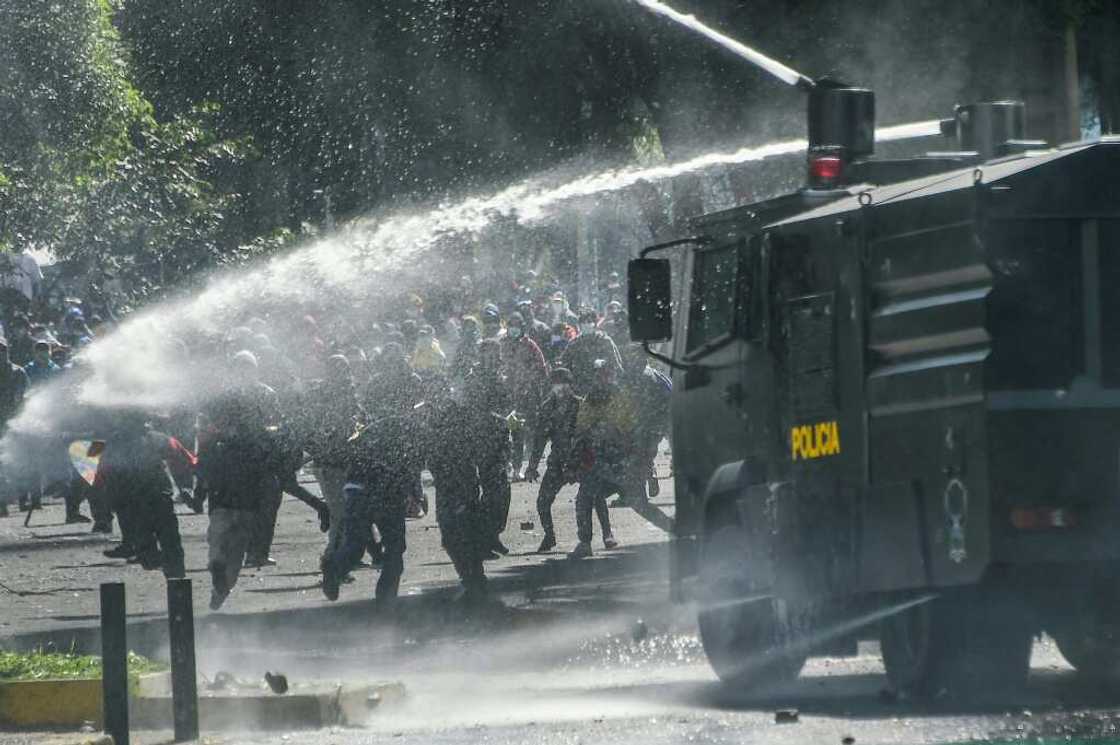
Source: AFP
Another, 40-year-old pastor Marco Vinicio Morales, said he could not understand how in a country with vast oil, gold and silver resources, people were falling ever further behind.
"If there is no answer (to the protesters' demands), Lasso will have dug his own grave," he said.
Diners flee teargas
Business owners, shopkeepers and workers in the capital, just starting to recover from closures due to the coronavirus pandemic, are not pleased.
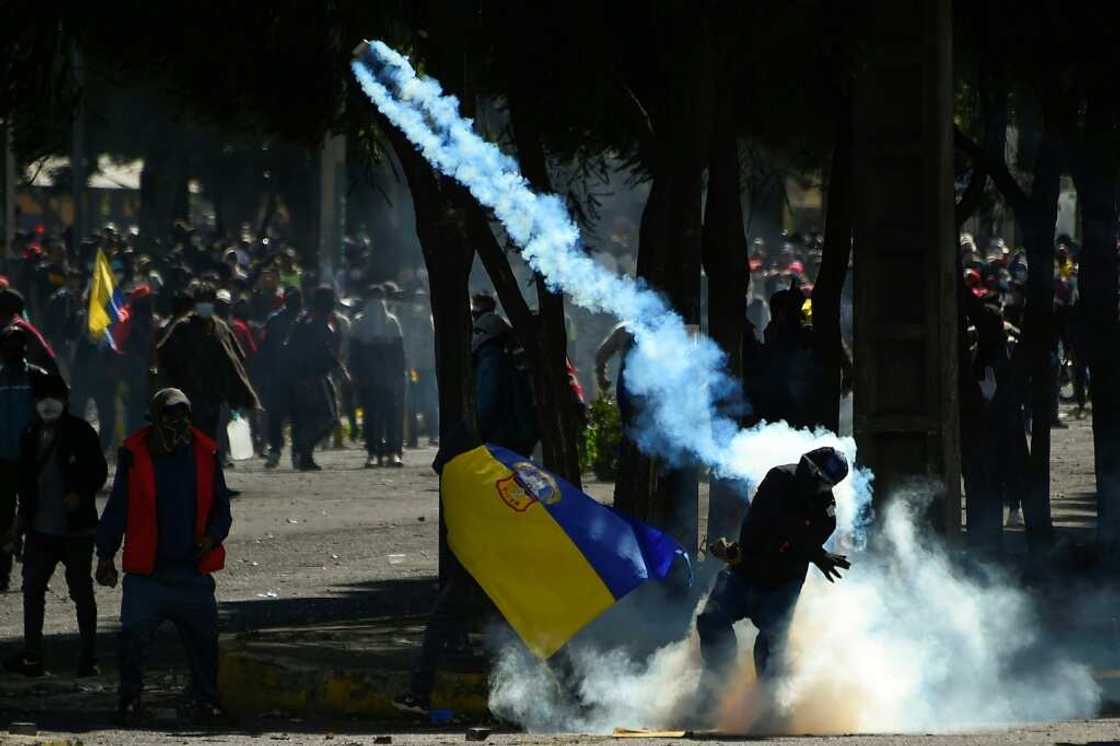
Source: AFP
Efren Carrion, a 42-year-old chef, said his restaurant normally sells about 120 meals on a week day. "These days, it has been 10 or 25 maximum," he said.
And due to the ubiquitous teargas in the air, "clients often leave running, without paying."
For Carrion, workers like him should not have to pay the price for the protest.
"The best revolution is to work and reach an agreement, to negotiate," he said.
So far, no talks have been scheduled as both side dig in their heels.
Source: AFP


